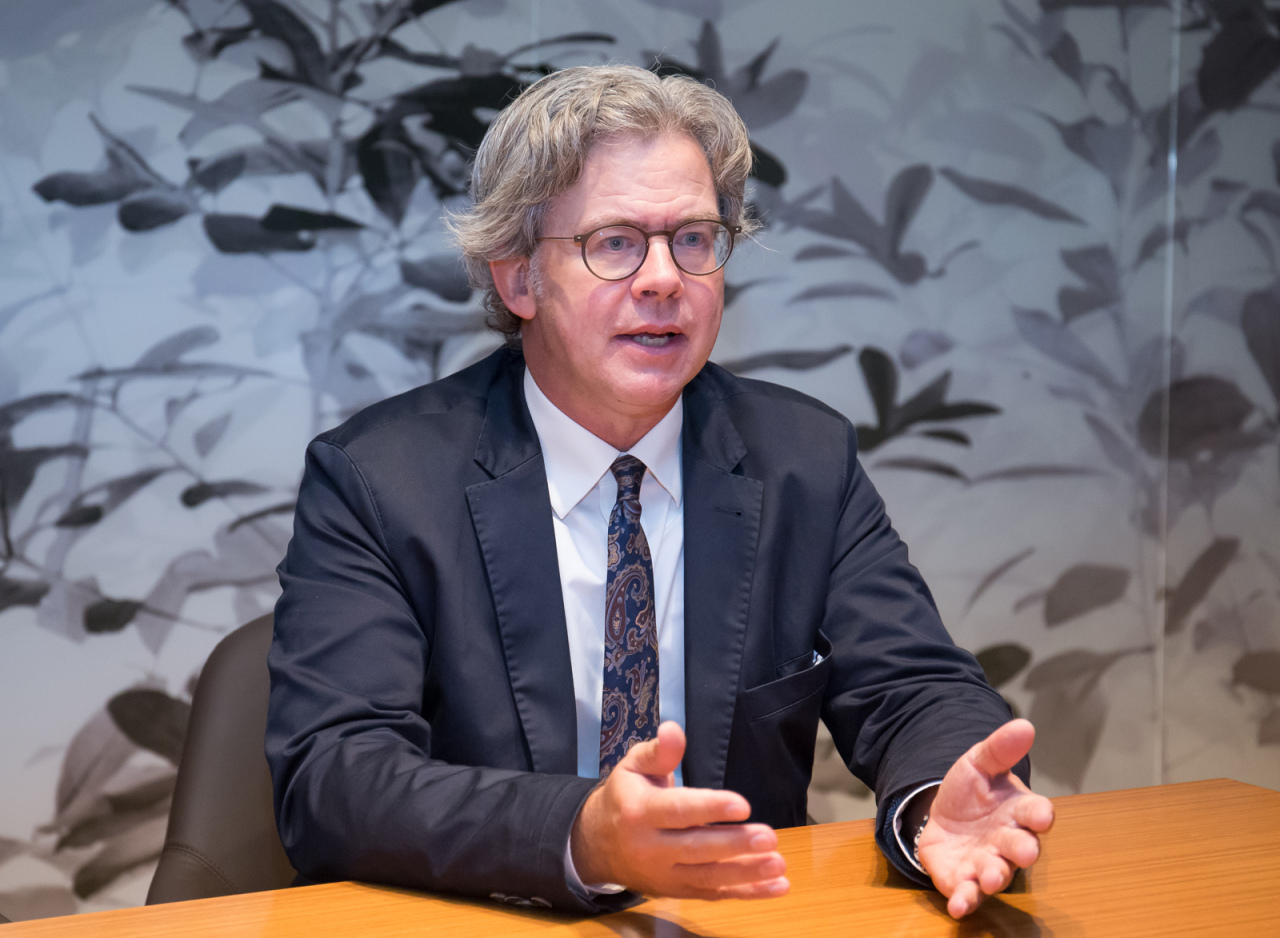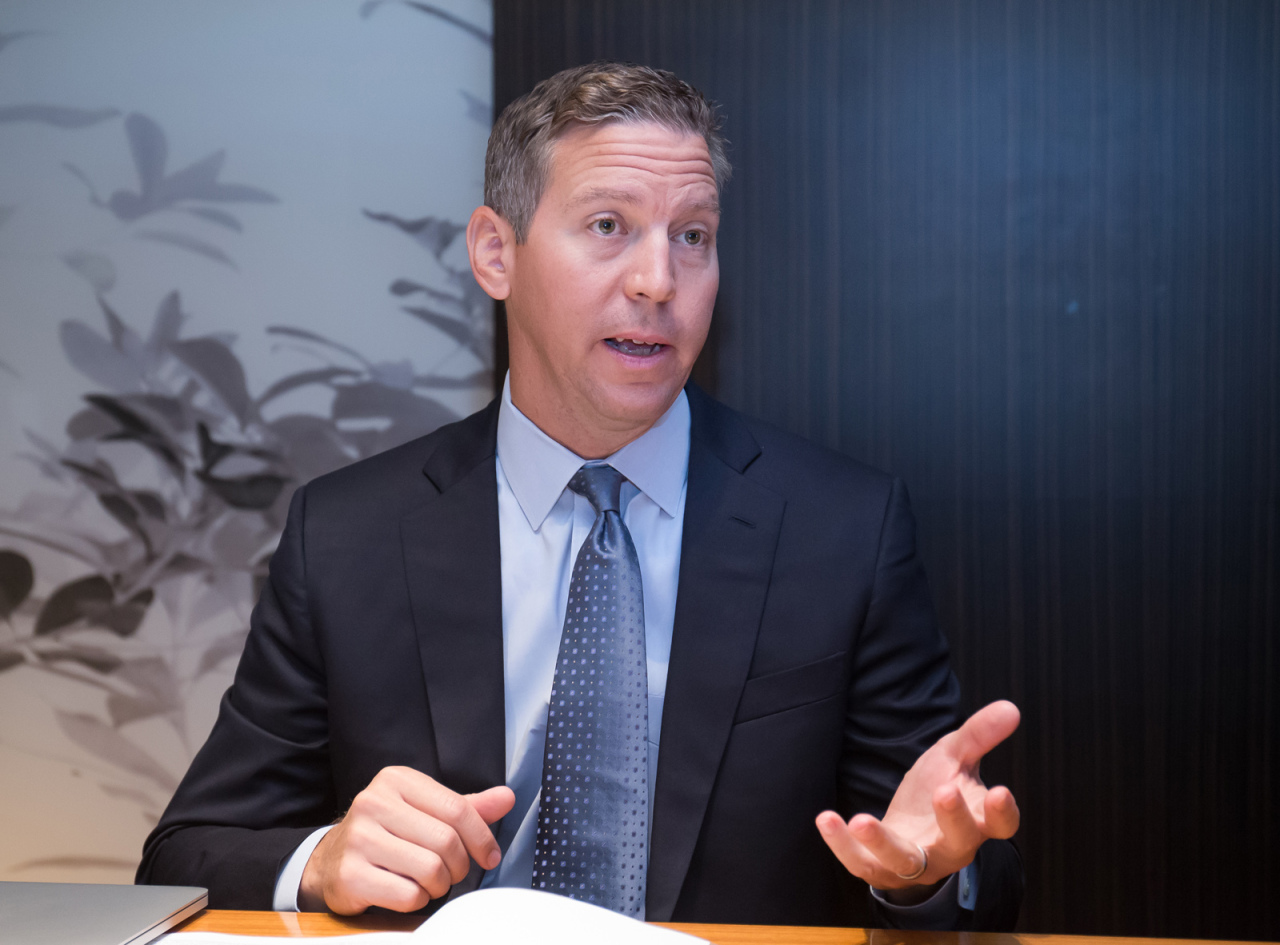Artificial intelligence is here to stay, according to GE Healthcare Chief Medical Officer Mathias Goyen, who highlighted its role in advancing precision medicine.
“AI per se will not replace radiologists, but professionals who leverage the power of AI will replace those who don’t,” he told reporters Friday.
Goyen was speaking on the sidelines of the 75th Korean Congress of Radiology that took place at Coex exhibition hall in Seoul through Saturday and was joined by his colleague Chief Commercial Officer Scott Miller.

GE Healthcare Chief Medical Officer Mathias Goyen (GE Healthcare)
GE Healthcare is a $19.8 billion-size medical device business under General Electric with some 100 years of history in the health care sector. Its competitors include Philips Healthcare and Siemens Healthcare.
All major medical device firms are adopting AI software in medical devices, but what sets GE Healthcare apart from startups and newcomers is that it can apply AI to all three stages of prescanning, scanning and postscanning radiology for individual devices, Goyen said.
With over 1 million radiology devices operating across the world, the company accumulates some 16,000 images every second. Using the vast data, GE Healthcare’s AI algorithms can compare hundreds of images faster than humans which is a time-consuming task that can be repetitive and boring, according to the firm.
“AI offers tremendous opportunities to free up time for radiologists to actually talk to the patients and take care of more sophisticated cases,” Goyen said, “My advice is to embrace AI and don’t be afraid.”
GE Healthcare’s AI brand is named Edison after the company’s founder. Edison debuted at the 2018 meeting of Radiological Society of North America in Chicago, US, in November.
Currently, GE Healthcare has 50 intelligent applications built under the Edison brand, with the latest technology being TrueFidelity which is a deep-learning based CT image reconstructing technology. It shortens the time patients are exposed to radiation without compromising on the image quality. At this year’s KCR, GE Healthcare highlighted its deep-learning algorithm used in TrueFidelity for CT scans for potential, optimized MRIs.

GE Healthcare Chief Commercial Officer Scott Miller (GE Healthcare)
TrueFidelity was introduced in March at the 2019 European Congress of Radiology in Vienna, Austria. It gained the US Food and Drug Administration’s approval in April and is awaiting approval from Korea’s Ministry of Food and Drug Safety.
"The real power of Edison is empowering collaboration between smart devices and applications. The Edison platform is vendor-agnostic. It can accept data from all manufacturers’ platforms and enable our devices to connect to each other. We can produce usable data, create applications and partner with medical institutions from all over the world.” said Scott Miller, the CCO of GE Healthcare.
Humber River Hospital in Toronto, Canada, has implemented GE Healthcare’s AI technology embedded Clinical Command Center, which is tiles of screens that offer a rundown of prioritized information from the hospital. The command center led to 45 percent reduction in unnecessary bed use, according to Miller.
To store its big data, GE Healthcare works with Nvidia, Intel, Amazon and Microsoft.
Its clinical partners are University of California San Francisco, Boston Children’s Hospital, Partners’ Hospital and Korean health care institutions.
In Korea, GE Healthcare has signed a memorandum of understanding with Yonsei Severance Hospital for AI research and development. Korea University Anam Hospital is also mulling the gradual adoption of its clinical command center. Chang Je-yul, leader of imaging team at GE Healthcare Korea, said that several AI companies here are in contact with GE Healthcare’s global team to collaborate on research for 2020.
By Lim Jeong-yeo (
kaylalim@heraldcorp.com)







